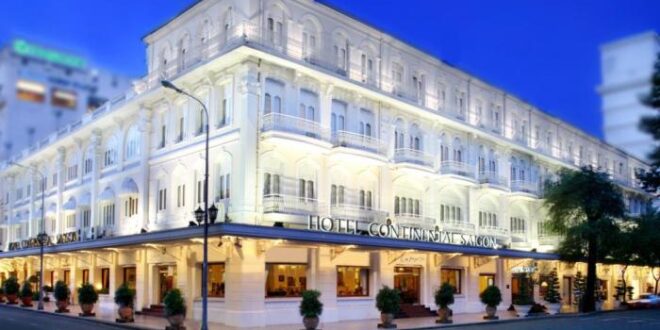Colonial hotels stand as testaments to a bygone era, blending historical charm with modern amenities. These architectural gems offer a unique blend of heritage and hospitality, providing guests with an immersive experience that transports them back in time.
From their grand architecture to their impeccable service, colonial hotels have played a pivotal role in the development of tourism and hospitality. As living museums, they showcase the cultural heritage of the past while adapting to the demands of the present.
Historical Significance
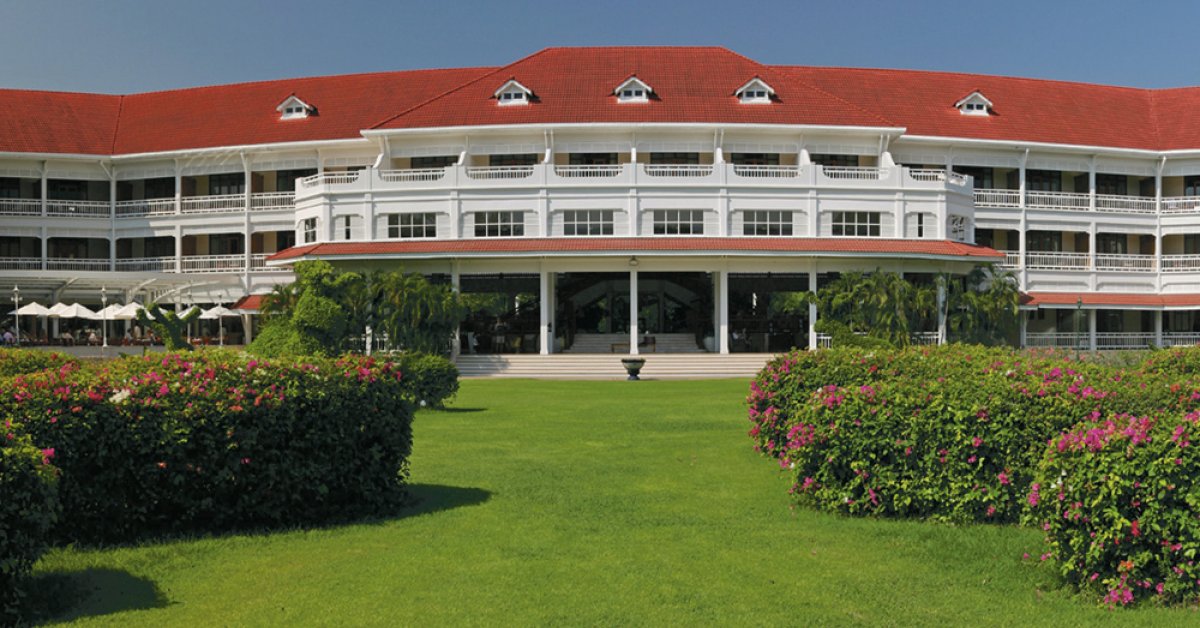
Colonial hotels played a significant role in the development of tourism and hospitality. They served as a gateway for travelers to experience different cultures and provided a glimpse into the colonial era. These hotels often showcased the architectural styles of the colonizing countries and became iconic landmarks in their respective regions.
Famous Colonial Hotels
Some notable colonial hotels include:
- The Raffles Hotel in Singapore (opened in 1887), known for its colonial architecture and luxurious accommodations.
- The Taj Mahal Palace in Mumbai, India (opened in 1903), a grand hotel that combines Indian and Western architectural elements.
- The Mount Nelson Hotel in Cape Town, South Africa (opened in 1899), a historic hotel that has hosted many notable guests over the years.
Architectural Features: Colonial Hotel
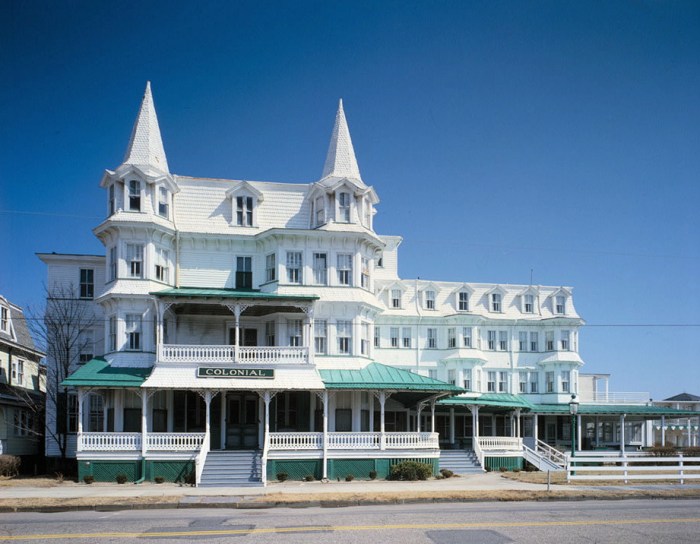
Colonial hotels are renowned for their distinctive architectural features that reflect the colonial era and local culture. These features include verandas, courtyards, and grand staircases, which served both practical and aesthetic purposes.
Verandas, or wide porches, were a common feature of colonial hotels. They provided a shaded outdoor space for guests to relax and socialize while enjoying the surrounding views. In tropical climates, verandas also helped to keep the interior of the hotel cool and airy.
Courtyards were another important architectural feature of colonial hotels. They provided a central gathering space for guests and served as a focal point for the hotel’s design. Courtyards were often surrounded by arcades or colonnades, which provided shade and shelter from the sun and rain.
Grand staircases were a prominent feature of many colonial hotels. They were often made of marble or wood and were elaborately decorated with carvings and moldings. Grand staircases served both a practical and aesthetic purpose, providing a dramatic entrance to the hotel and adding to its overall grandeur.
Notable Architectural Details
- The Raffles Hotel in Singapore is known for its grand colonial architecture, which includes a wide veranda, a central courtyard, and a magnificent staircase.
- The Mount Nelson Hotel in Cape Town, South Africa, features a beautiful Victorian-style veranda that overlooks the hotel’s gardens.
- The Taj Mahal Palace Hotel in Mumbai, India, is renowned for its stunning Indo-Saracenic architecture, which includes a grand staircase with intricate carvings and moldings.
Hospitality and Service
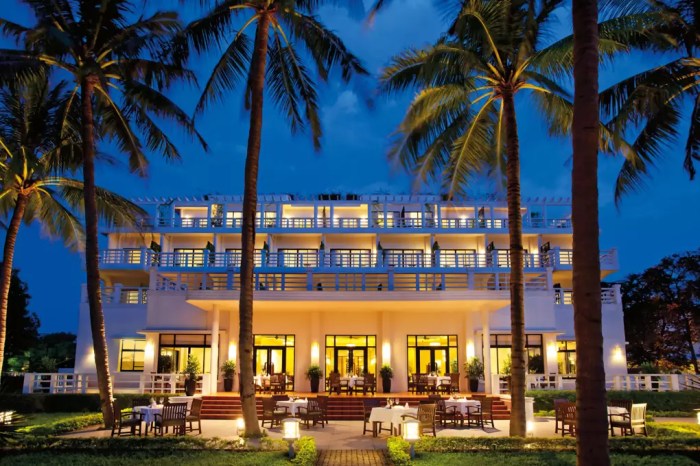
Colonial hotels are renowned for their exceptional hospitality and service standards, which have been meticulously preserved and refined over time to meet the evolving expectations of modern travelers. These standards are deeply rooted in the traditions of the colonial era, emphasizing personalized attention, graciousness, and a commitment to exceeding guest expectations.
One of the hallmarks of colonial hotel hospitality is the emphasis on personalized service. Guests are greeted with warm smiles and genuine care, and their needs are anticipated and met with efficiency and discretion. The staff at colonial hotels is highly trained and dedicated to providing an unforgettable experience for every guest, ensuring that they feel valued and respected throughout their stay.
Evolving Standards
While the core principles of colonial hotel hospitality remain unchanged, the specific standards have evolved over time to meet the changing expectations of modern travelers. Today’s colonial hotels offer a seamless blend of traditional charm and contemporary amenities, ensuring that guests can enjoy the best of both worlds.
Colonial hotels are a testament to the architectural heritage of the past, showcasing the grandeur and opulence of a bygone era. One such hotel is the Agincourt Hotel , which stands as a majestic landmark in the heart of Beaufort, South Carolina.
With its towering columns, intricate moldings, and spacious verandas, the Agincourt Hotel embodies the elegance and charm of colonial architecture, inviting guests to step back in time and experience the allure of a bygone era.
For example, many colonial hotels have incorporated modern technology into their service offerings, such as online booking systems, mobile check-in, and personalized recommendations. Additionally, they have expanded their culinary offerings to include a wider range of cuisines and dining experiences, catering to the diverse tastes of today’s travelers.
Exceptional Experiences
Exceptional hospitality experiences at colonial hotels are not just limited to the past. Many modern colonial hotels continue to uphold the highest standards of service, creating memorable experiences for their guests.
One such example is the Raffles Hotel in Singapore, which has been welcoming guests since 1887. The hotel is renowned for its impeccable service, which includes a dedicated butler service for every guest and a range of personalized amenities. Guests can expect to be treated with the utmost care and attention, making their stay at the Raffles Hotel a truly unforgettable experience.
Cultural Heritage
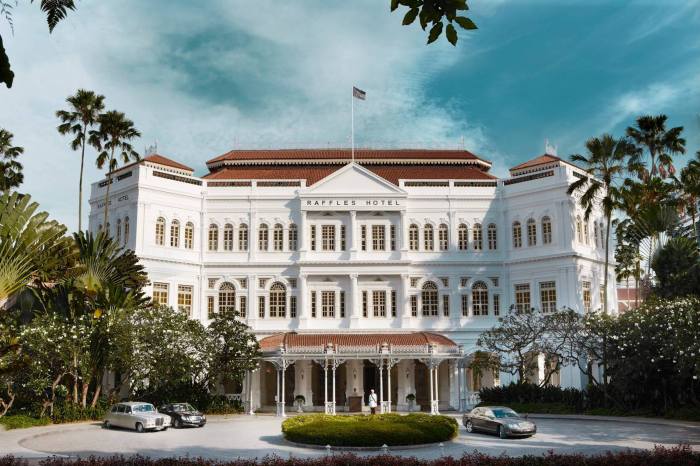
Colonial hotels stand as living repositories of cultural heritage, preserving remnants of bygone eras within their walls.
They meticulously preserve historical artifacts, furniture, and artwork, providing tangible connections to the past. These relics serve as silent witnesses to the lives and events that unfolded within the hotel’s hallowed halls.
Colonial hotels offer a unique blend of history and hospitality. One such establishment is the Kevinton Hotel , a charming property located in the heart of a bustling town. Originally built in the early 1900s, the Kevington Hotel has been meticulously restored to its former glory, preserving its colonial architecture while offering modern amenities.
Its elegant rooms and suites are adorned with period furnishings, creating an atmosphere that transports guests back in time.
Artifacts and Furniture
- Antique maps, navigational instruments, and travel trunks evoke the era of exploration and discovery.
- Period furniture, such as four-poster beds, writing desks, and armoires, recreate the ambiance of a bygone era.
- Vintage photographs and paintings capture moments in time, offering glimpses into the lives of past guests.
Artwork, Colonial hotel
- Original oil paintings, watercolors, and sketches adorn the walls, depicting scenes of colonial life, landscapes, and historical events.
- Intricate tapestries and textiles showcase the craftsmanship and artistry of the period.
- Stained glass windows cast colorful hues, illuminating the interiors with an ethereal glow.
Colonial hotels are not merely places of accommodation but living museums that transport guests back in time. They provide an immersive experience, allowing visitors to connect with the past and appreciate the rich cultural heritage that has shaped the present.
Colonial hotels, remnants of a bygone era, evoke a sense of grandeur and history. One such hotel, the Boomerang Hotel Mackay , stands as a testament to this architectural legacy. Its ornate facade and elegant interiors transport guests back to a time of colonial opulence.
While many colonial hotels have undergone renovations and modernizations, the Boomerang Hotel Mackay retains its original charm, offering a glimpse into the past while providing contemporary amenities for a comfortable stay.
Modern Adaptations
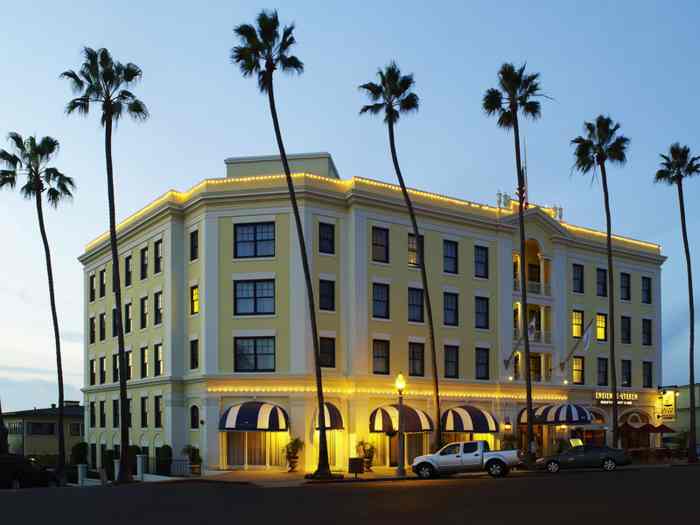
Colonial hotels have embraced modernization to enhance guest experiences while preserving their historical charm. This involves integrating modern amenities and technologies while respecting the original architectural features and cultural heritage.
Balancing modernization with historical preservation requires careful planning and execution. Hotels must ensure that new additions complement the existing structure and do not detract from its architectural integrity. At the same time, they need to provide guests with the comforts and conveniences expected in contemporary accommodations.
Successful Adaptations
Several colonial hotels have successfully implemented modern adaptations that enhance the guest experience:
- Upgraded Technology:Many colonial hotels have incorporated modern technologies such as Wi-Fi, smart TVs, and electronic key systems to provide guests with seamless connectivity and convenience.
- Sustainable Practices:Hotels are adopting sustainable practices to reduce their environmental impact, including energy-efficient lighting, water conservation measures, and eco-friendly toiletries.
- Accessibility Features:To accommodate guests with disabilities, colonial hotels have installed ramps, elevators, and accessible bathrooms to ensure a comfortable and inclusive experience.
- Enhanced Comfort:Modern amenities such as air conditioning, comfortable bedding, and upgraded bathrooms provide guests with a luxurious and comfortable stay while preserving the hotel’s historical ambiance.
Marketing and Promotion
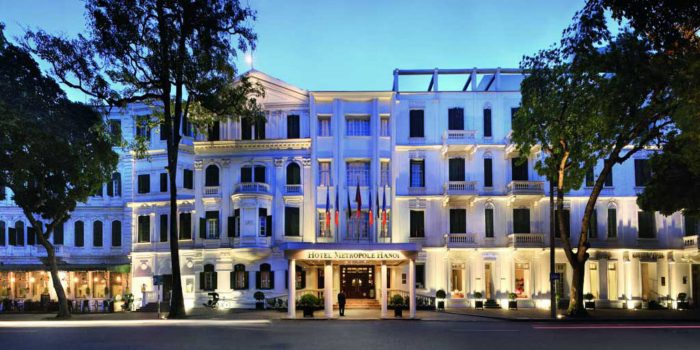
Colonial hotels employ a range of marketing strategies to promote their unique offerings and attract guests. They leverage their historical charm, authentic experiences, and cultural heritage to differentiate themselves in the hospitality industry.
Online Marketing
Colonial hotels have a strong online presence to reach a wider audience. They create engaging websites and social media profiles that showcase their historical significance, architectural features, and hospitality services. They use search engine optimization () and paid advertising to increase their visibility in search results and target potential guests.
Experiential Marketing
Colonial hotels offer immersive experiences that allow guests to step back in time and experience the charm of a bygone era. They host historical tours, reenactments, and themed events that provide guests with a deeper understanding of the hotel’s past and the surrounding area.
These experiences create memorable moments and encourage guests to share their positive reviews online.
Partnerships and Collaborations
Colonial hotels often partner with local historical societies, museums, and tourism boards to promote their offerings and reach a wider audience. These partnerships allow them to cross-promote their services and offer exclusive packages and discounts to guests.
Content Marketing
Colonial hotels create valuable content that educates and entertains potential guests. They publish blog posts, articles, and videos that share historical anecdotes, architectural insights, and behind-the-scenes stories. This content helps establish the hotel as a trusted source of information and builds a loyal following.
Targeted Advertising
Colonial hotels use targeted advertising campaigns to reach specific audiences interested in historical travel, cultural experiences, and luxury accommodations. They utilize platforms like Google AdWords, Facebook Ads, and Instagram Ads to display tailored ads to potential guests based on their demographics, interests, and browsing history.
Final Thoughts
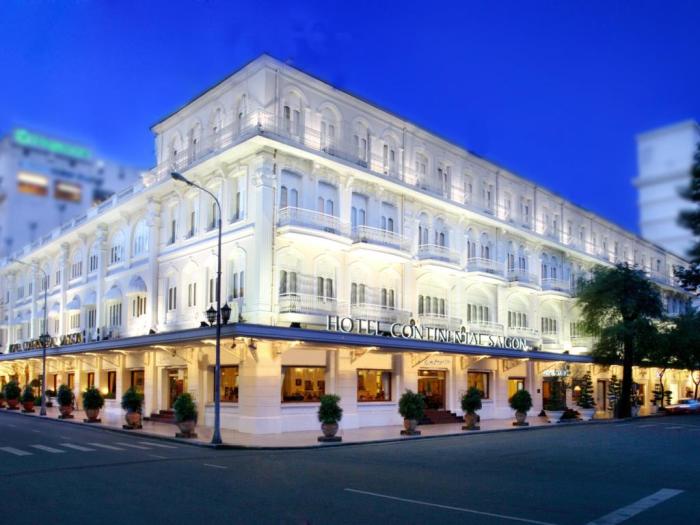
Colonial hotels continue to captivate travelers with their timeless elegance and exceptional service. Their ability to blend historical preservation with modern adaptations ensures their relevance in the ever-evolving hospitality industry. As destinations that celebrate the past while embracing the future, colonial hotels offer guests a truly unforgettable experience.
FAQs
What are the common architectural features of colonial hotels?
Colonial hotels often feature verandas, courtyards, grand staircases, and elaborate moldings. These elements reflect the architectural styles of the colonial era and the local culture.
How have colonial hotels adapted to modern amenities?
Colonial hotels have incorporated modern amenities such as air conditioning, Wi-Fi, and updated bathrooms while preserving their historical charm. They have also introduced new facilities like spas and fitness centers to cater to the needs of contemporary travelers.
What is the significance of colonial hotels in preserving cultural heritage?
Colonial hotels serve as living museums, showcasing historical artifacts, furniture, and artwork. They play a crucial role in preserving the cultural heritage of the past and educating guests about the history of the region.
